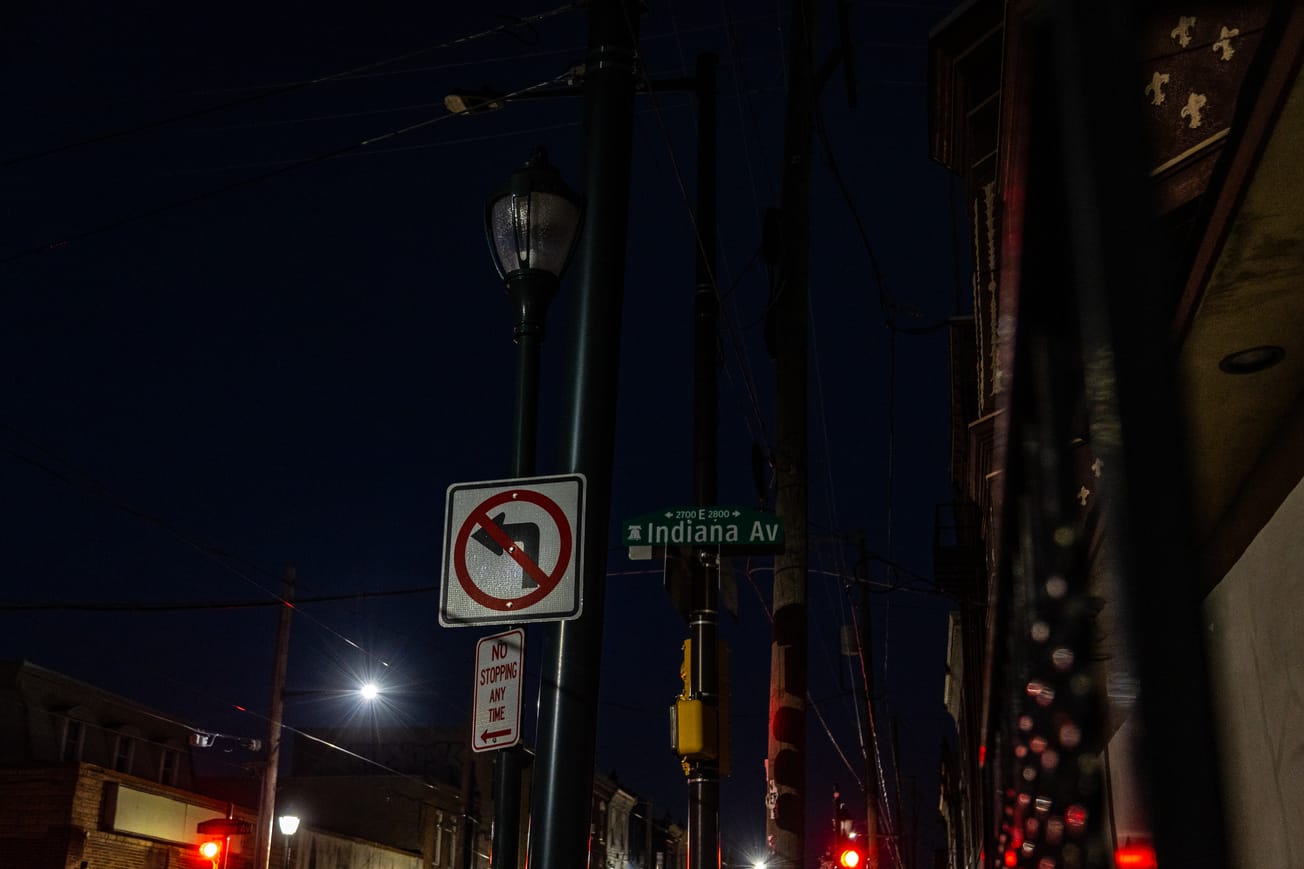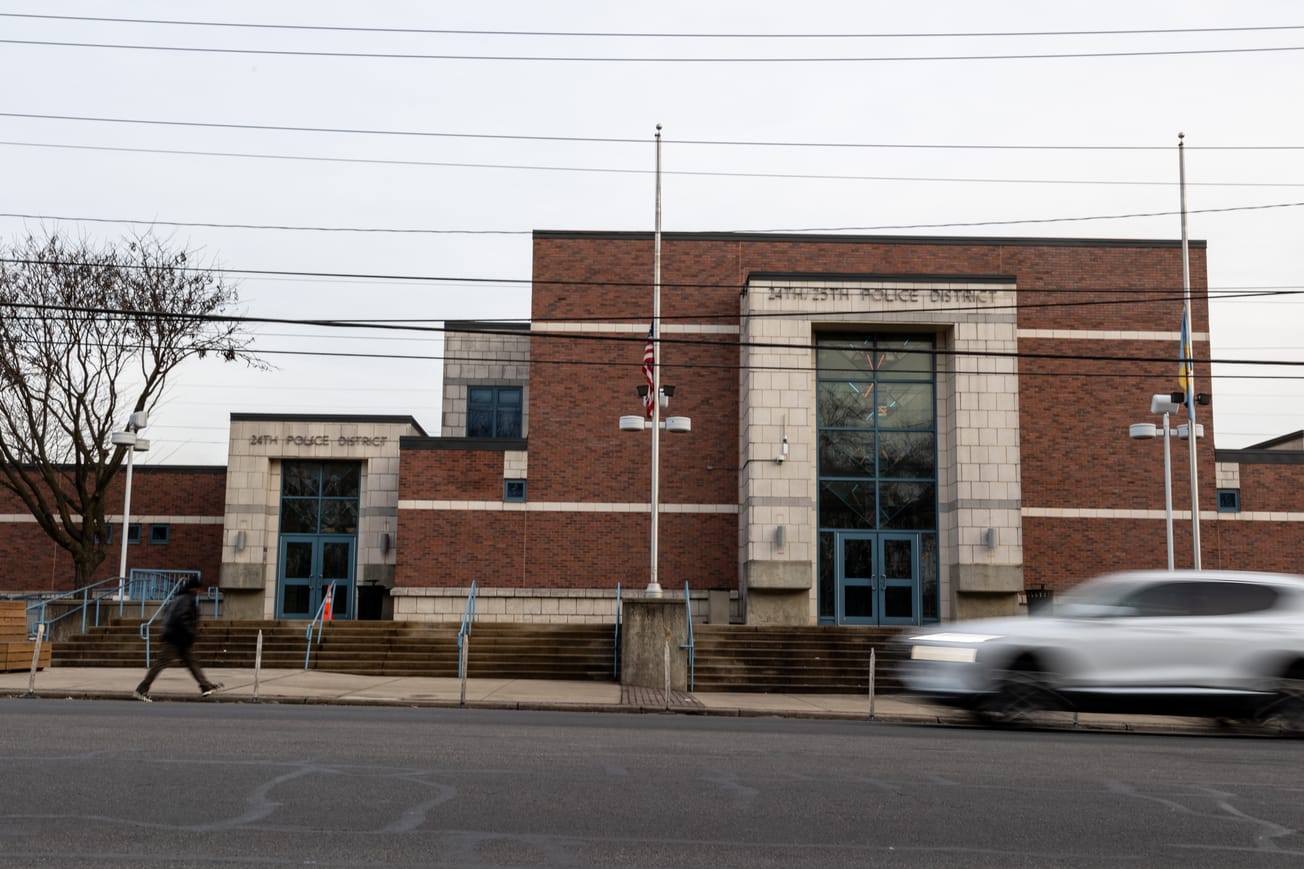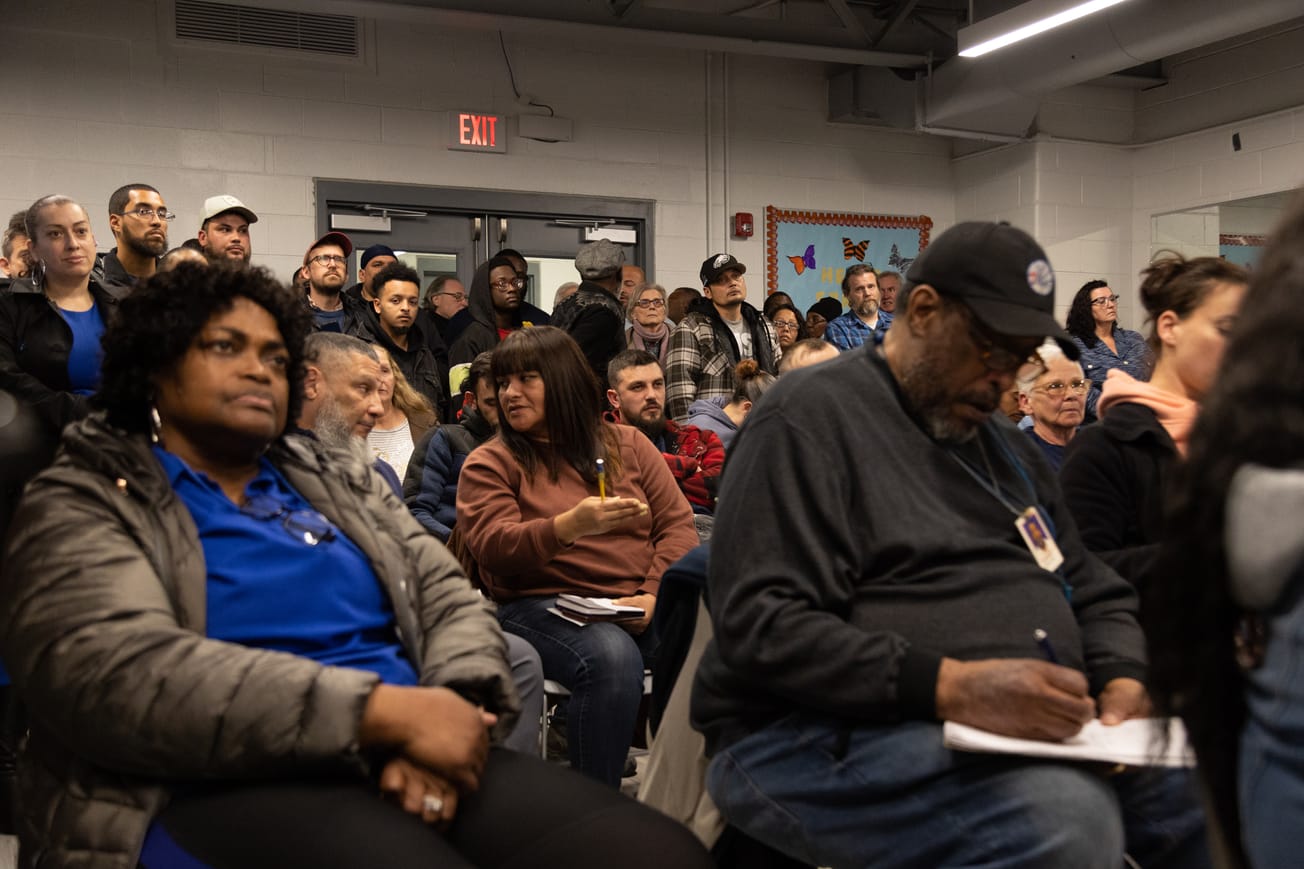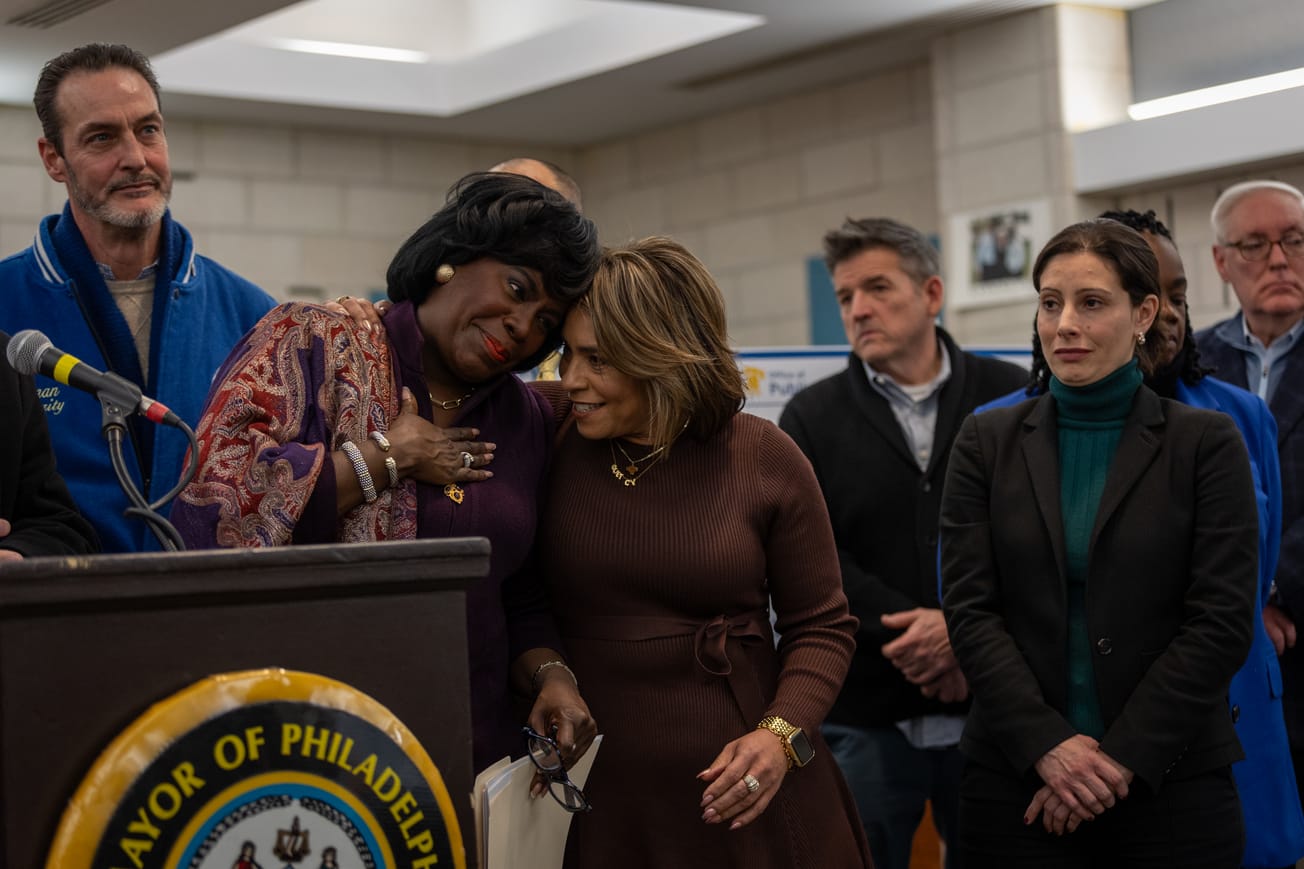At City Hall on Thursday, Philadelphia City Council voted to ban supervised injection sites in nearly all of Philadelphia, except for City Council District 3 in West and Southwest Philly.
The 13-1 vote followed an emotional series of testimonies from people impacted by the city's overdose crisis and the quality of life in Kensington. It also followed the latest of two public safety committee hearings about the open-air drug market in the neighborhood.
Before the hearing, District 7 Councilwoman Quetcy Lozada – who introduced the legislation on May 11 – addressed the public outside of City Hall, with a group of councilmembers standing behind her.
“It is not fair to the children in that community to have to walk by what they walk by every day,” Lozada said. “The people behind me are committed – we are committed – to long-term recovery programs, we are committed to finding real solutions to giving those who are suffering from addiction, [and] a better quality of life to the Kensington-Harrowgate community.”
Meanwhile, other demonstrators with Kensington ties held signs with statements like “Saving lives is not a crime” in opposition to the ban.
“Too many people are dying,” said textile artist Kathyrn Pannepacker, who has co-facilitated various art-as-harm reduction programs in Kensington at Prevention Point. “We need a safe place for folks to inject, to consume, for medical assistance, for wellness support, for access to treatment, for access to wound care… we just need safe solutions for everyone.”
Kensington and Harrowgate testimonies
While the prospect of opening a supervised injection site has over time elicited a spectrum of opinions, the testimonies presented by Kensington and Harrowgate residents during the hearing on Thursday were in direct support of or opposition to the ban.
Lucia DiMascia, a Harrowgate resident, expressed her support for the ban.
“We cannot walk the streets without seeing uncapped needles,” DiMascia said. “Children [are] watching this in their developmental years and thinking that it’s normal.”
Moses Santana, a Kensington resident, spoke in support of the sites. He recalled growing up as a child in the neighborhood, helping and feeding people who were in addiction.
“We’re not going to agree on all the measures but [opioid prevention centers] work and they save lives,” Santana said. “If you folks deny this tool, you are responsible for these deaths.”
“I hope that each and every one of you who vote yes to the ban comes to every funeral,” Santana added.
Marnie Augment-Loughrey, the 33rd Democratic ward leader and Kensington Independent Civic Association (KICA) president, gave her speech amidst uproar in the council chambers.
“We have the right to say what happens and goes in our community and the people who live on the street have the right to become healthy and be reunited with their families,” Augment-Loughrey said. “That is not done through a safe injection site. That is done through rehabilitation. That is done through rehabs. That is done through education. That is done through getting them into recovery.”
What the bill says
The legislation, introduced by District 7 Councilmember Quetcy Lozada on May 11, creates a zoning overlay that bans organizations from opening facilities where people can inject drugs like fentanyl and heroin under medical supervision.
It describes these facilities – often called “safe consumption,” “overdose prevention,” and (previously) “comprehensive user engagement” sites by public health advocates – , as "narcotics injection sites," defining them as follows:
"A Narcotic Injection Site means a healthcare facility or establishment, with oversight provided by one or more health care professionals, that provides space for any person to inject, ingest, inhale, or otherwise introduce into the person's body an unprescribed controlled substance as included in Schedules I through IV of the Pennsylvania Controlled Substance Drug, Device and Cosmetic Act. This does not include sites that are established solely for the purpose of dispensing or providing medication used in medically assisted drug therapy treatments."
Facilities like the bill describes have opened and remained so legally in North America for 20 years since InSite opened the first legal North American site in Vancouver in 2003. In the United States, New York opened the first legal American site in 2021, and Rhode Island authorized harm reduction centers to provide similar services in 2021, too.
In 2022, 1,413 people died in Philadelphia from an unintentional overdose, according to Philadelphia’s Department of Health.
The legislation’s Kensington connections
Four of the bill's eight sponsors, including Councilmembers Lozada (District 7), Mike Driscoll (District 6), Mark Squilla (District 1), and Jim Harrity (At-Large), have direct ties to Kensington. (At-large council members represent the whole city).
Lozada has represented District 7, which includes the neighborhoods between Master Street to the north side of Roosevelt Boulevard, following a 2022 special election after her predecessor Maria Quiñones-Sánchez left office to run for mayor. Squilla has represented District 1, which spans from South Philadelphia from the Walt Whitman Bridge to Frankford Creek, since 2012.
Both Lozada and Squilla represent constituents on either side of the Kensington and Allegheny Avenue intersection, widely considered the heart of the neighborhood and the open-air drug market engulfing it. But starting in January, when the new City Council District boundaries go into effect, Councilmembers Lozada, Squilla, and Driscoll will each represent a portion of the intersection.
Driscoll, who has represented District 6 since he was elected during a special election in 2022, will represent the northeast side of the intersection, while Squilla will represent the southeast.
After the new district boundaries were approved in February 2022, some residents expressed concerns about the division of power across such a complicated location, and the work required to build relationships with a new councilperson.
Finally, Councilmember Harrity is a Kensington resident.
Here’s who voted against the legislation
At-Large Councilmember Kendra Brooks, Philly’s first councilperson elected from the Working Families Party, cast the only vote against the legislation.
“My purpose is finding the strategies that will prevent people from dying, and I can’t support permanently banning a tool that is proven to save lives,” Brooks said.
Councilmember Jamie Gauthier, who represents District 3 (the only district not included in the ban), did not attend the meeting to cast a vote because she was traveling to a conference with her son. However, she expressed her opposition to the ban in a press release.
“When we are talking about saving lives, we should not take anything off the table,” said Gauthier, according to the press release. “I know my colleagues are just as concerned as I am by the drug crisis, and I am unwilling to deny my constituents their right to at least consider a tool that has been proven to save lives in other jurisdictions.”
What’s next?
The bill is waiting for a signature from Mayor Jim Kenney, who has previously spoken in support of supervised injection sites. However, if Kenney vetoes the legislation, City Council can override his veto due to the supermajority vote.
Meanwhile, at the federal level, Safehouse, the nonprofit that has sought to open a supervised injection site in Philadelphia since 2018, is still involved in a civil lawsuit against the United States Department of Justice.
Have any questions, comments, or concerns about this story? Send an email to editors@kensingtonvoice.com.
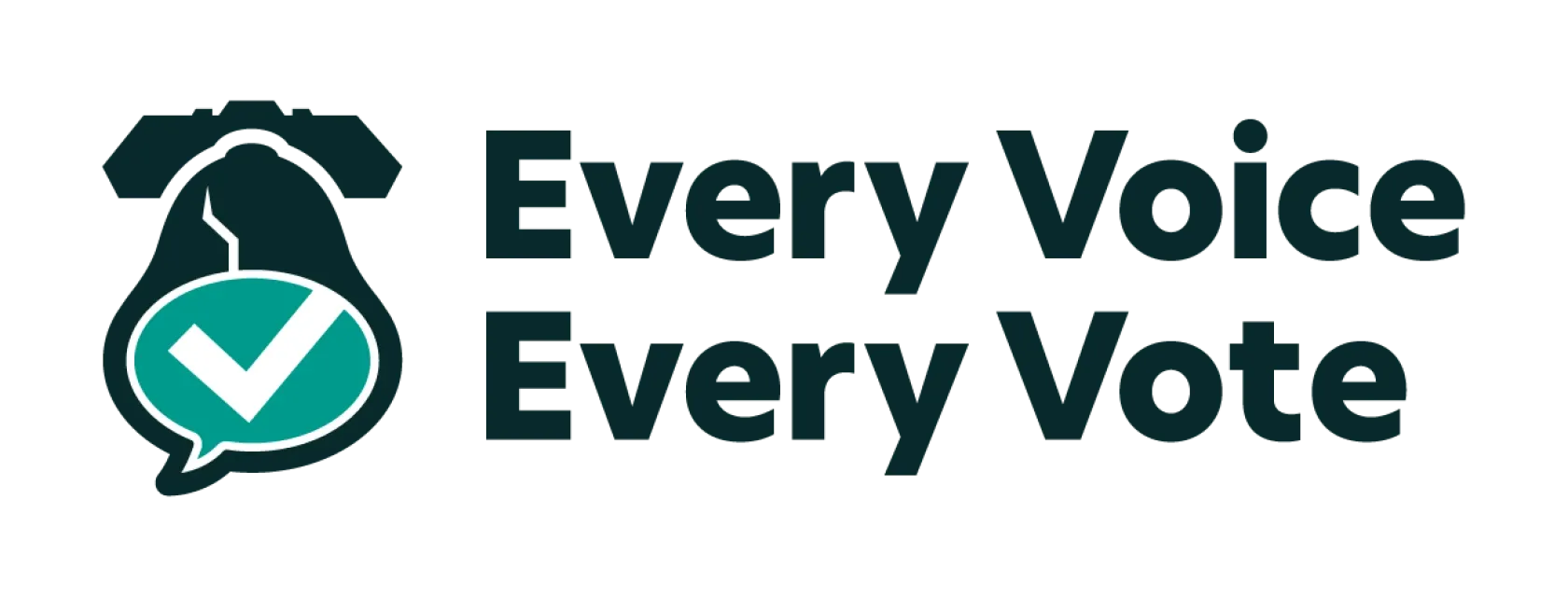
This content is a part of Every Voice, Every Vote, a collaborative project managed by The Lenfest Institute for Journalism. Lead support is provided by the William Penn Foundation with additional funding from The Lenfest Institute, Peter and Judy Leone, the John S. and James L. Knight Foundation, Harriet and Larry Weiss, and the Wyncote Foundation, among others. To learn more about the project and view a full list of supporters, visit www.everyvoice-everyvote.org. Editorial content is created independently of the project’s donors.


